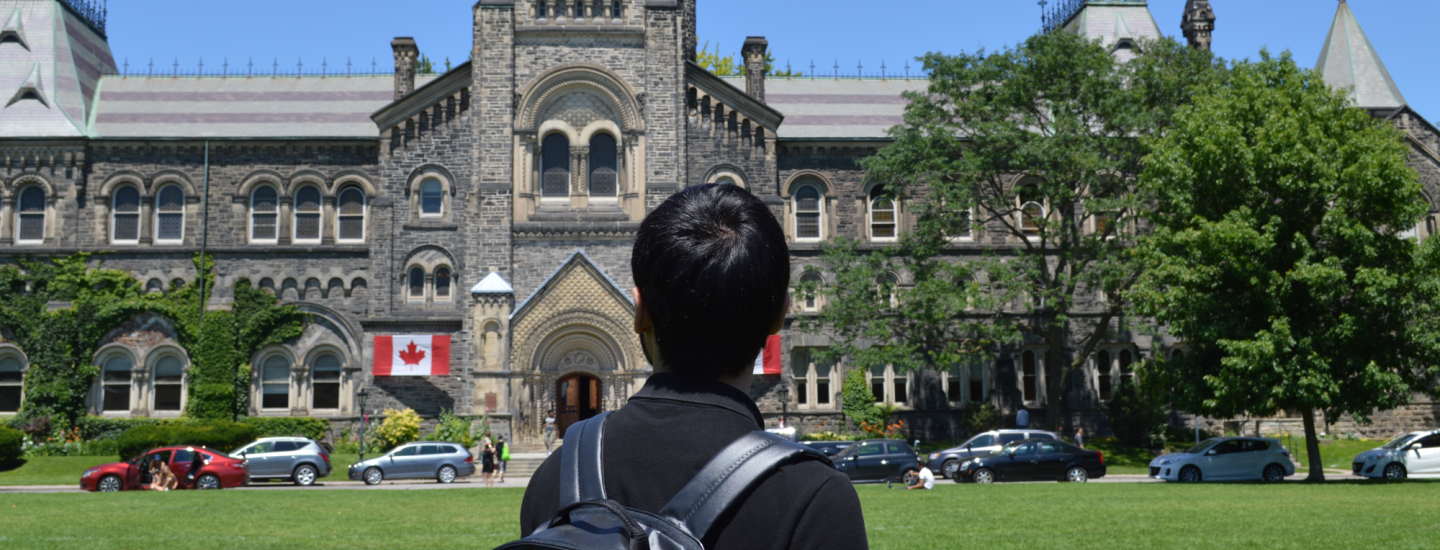
“Our instructor really built an online space where we felt included and engaged… This course was such a positive and motivating experience. I felt part of a community, and my confidence really skyrocketed.” - Anja Endruweit, English for Effective Communication learner.
When Anja Endruweit and her family had the opportunity to move from Germany to Toronto while her husband was on a work contract, they jumped at the chance to experience a new city and culture. In 2019, they settled in Canada for a three-year stay, and Anja was eager to grow her English skills and immerse herself in a new culture. “We had never been to Canada before; it was a big change but also exciting. We were immediately welcomed into the German expat community, and appreciated what a special and multicultural city Toronto is,” reflects Anja. “I would say I had an intermediate understanding of English at the time. I really enjoyed practicing my English skills throughout the day with people I met. But then, the pandemic hit, and my ability to connect with others, and practice my English, basically disappeared. My English skills started to decline.”
Between lock downs, social distancing, and mask protocols, Anja suddenly found herself with limited opportunities to use and practice her English. So, she decided to take her learning into her own hands. “A fellow expat suggested I look into the English for Effective Communication course in the English Language Program (ELP) at the University of Toronto School of Continuing Studies (SCS). I liked that the program was four weeks in length, with about 10 hours of learning and practice a week. I explored other programs, but many demanded a commitment of up to 25 hours a week, which just didn’t fit my life. Plus, at SCS, online classes were in the morning, so I figured it would be a great way to start my day. I went for it!” says Anja.
At first, Anja was hesitant to learn online, and was still dealing with the disappointment of moving to a new country and not being able to fully connect with the people. “I wanted to continue meeting new people, and go to cafés and talk. I feel that’s such a great way to really learn a language. But I was so happy to find that there was a strong sense of community in my online class,” recalls Anja, who completed the course in May 2021. “Our instructor really built an online space where we felt included and engaged. He had a very individualized approach to learning, and honed-in on everyone’s specific needs. He really met each learner where they were. This course was such a positive and motivating experience. I felt part of a community, and my confidence really skyrocketed.”
In fact, the course helped Anja connect with other learners both on -and off- line. “On top of class discussions and topical group work, we all exchanged contact information and have a WhatsApp group. My classmates and I even met up (socially distanced) in High Park; it was so great to meet everyone in person. We formed lasting connections and are still in touch,” smiles Anja. “When I started the program, one of my goals was to be able to read the newspaper and understand headlines without needing to use a translator app. I wanted to be able to sit with a coffee and a Canadian newspaper, and just read. Now, I have a much better sense of what’s being communicated, I no longer need my translator, and I am better at recognizing expressions such as ‘play it by ear’. The other day a woman used this term and I thought ‘yes! I know what that means’,” she laughs.
Today, Anja feels confident in her English skills, and plans to use her new abilities to learn more, and give back to the Toronto community. “In Berlin, I work as a biology teacher, so I’m very focused on education. The multiculturalism in Toronto really inspires me, and I’m eager to learn more about education systems and diversity frameworks in Canada,” says Anja. “I will also be volunteering at the High Park nature centre to support nature education for young kids. With my new language skills, I’m able to give back to the city that really welcomed me.”












